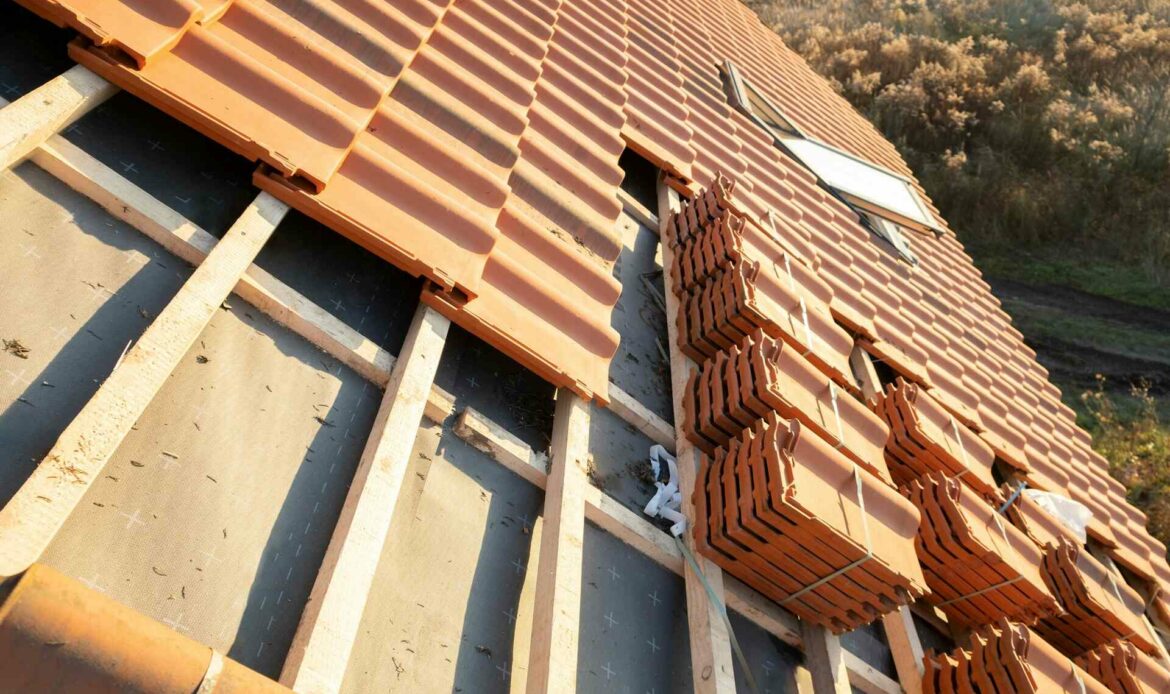Choosing the right roofing material for your home is very important. Your roof protects you from the weather and adds to the look of your home. In New Jersey, the weather can be tough on roofs, with hot summers and cold winters. Finding a roofing material that can handle these conditions is key.
Many options are available, each with its benefits and drawbacks. Asphalt shingles are a popular choice because they are affordable and come in many colors. Metal roofs are strong and can last a long time, making them a good investment. Slate and tile roofs offer classic beauty and durability but can be more expensive. Wood and synthetic shingles provide a natural look but come with their own set of pros and cons.
In the following sections, we will explore these materials in detail. We’ll look at why each one might be the right choice for your New Jersey home. Understanding the differences will help you make an informed decision that will keep your home safe and looking good for many years.
Asphalt Shingles: A Popular Choice
Asphalt shingles are the most common roofing material for homes. They are popular because they are affordable and easy to install. This makes them a favorite for many homeowners in New Jersey.
These shingles come in many colors and styles, allowing you to choose a look that fits your home. They can mimic the appearance of more expensive roofing materials, like slate or wood, at a fraction of the cost. This versatility makes asphalt shingles an excellent option for many types of homes.
Asphalt shingles also hold up well in tough weather conditions. They are designed to withstand heavy rain, snow, and even strong winds. With proper maintenance, they can last around 20-30 years, making them a reliable choice for your roof.
Metal Roofing: Durable and Long-Lasting
Metal roofing is another great option for homes in New Jersey. It is well-known for its strength and durability, which is perfect for standing up to harsh weather. Metal roofs can withstand heavy snow, strong winds, and intense sunlight without significant wear and tear.
One of the biggest advantages of metal roofing is its long lifespan. A metal roof can last between 40 to 70 years, making it a solid long-term investment. While the initial cost may be higher than asphalt shingles, the durability and longevity of metal roofing often make it worth the expense.
Metal roofs are also fire-resistant and energy-efficient. They reflect heat from the sun, helping to keep your home cooler in the summer. This can reduce your energy bills and make your home more comfortable. Additionally, metal roofing requires less maintenance than other materials, which can save you time and money over the years.
Slate and Tile Roofing: Classic and Strong
Slate and tile roofing bring a classic and elegant look to any home. These materials have been used for centuries and are known for their strength and durability. Slate and tile roofs can last over 100 years if maintained properly, making them a long-lasting option.
One of the primary benefits of slate and tile roofing is their resistance to severe weather conditions. They can handle heavy snowfall, intense heat, and even hailstorms without significant damage. This makes them an excellent choice for New Jersey’s variable climate.
However, slate and tile roofing can be more expensive compared to other options. The materials themselves are costly, and the installation requires skilled labor, adding to the overall expense. Additionally, they are heavier than other roofing materials, so your home’s structure needs to be strong enough to support the weight.
Wood and Synthetic Shingles: Pros and Cons
Wood shingles, often made from cedar, offer a natural and charming look. They are durable and can last up to 30 years with proper care. Wood shingles provide good insulation and are resistant to strong winds. However, they require regular maintenance to prevent issues like rot and insect damage. They can also be more expensive than asphalt shingles.
Synthetic shingles, made from rubber or plastic, mimic the look of natural materials. They are lightweight and easier to install. Synthetic shingles are durable, often lasting 50 years or more. They are resistant to various weather conditions and require less maintenance than wood shingles. However, they can be costlier upfront.
Both wood and synthetic shingles have their pros and cons. Your choice will depend on your budget, the style you want, and how much maintenance you are willing to do.
Conclusion
Choosing the right roofing material for your home in New Jersey is an important decision. Each type of roofing material has its own benefits and drawbacks. Asphalt shingles are affordable and easy to install. Metal roofing is durable and long-lasting. Slate and tile roofs offer classic beauty and strength. Wood and synthetic shingles provide a natural look with various advantages.
In New Jersey, your roof has to handle different weather conditions. This makes the choice of material even more crucial. Proper research and understanding can help you make the best decision for your home’s roofing needs.
For professional advice and quality residential roofing service, contact Tri State Enterprises. Let us help you find the perfect roof for your home. Contact us today for a free consultation and estimate.
